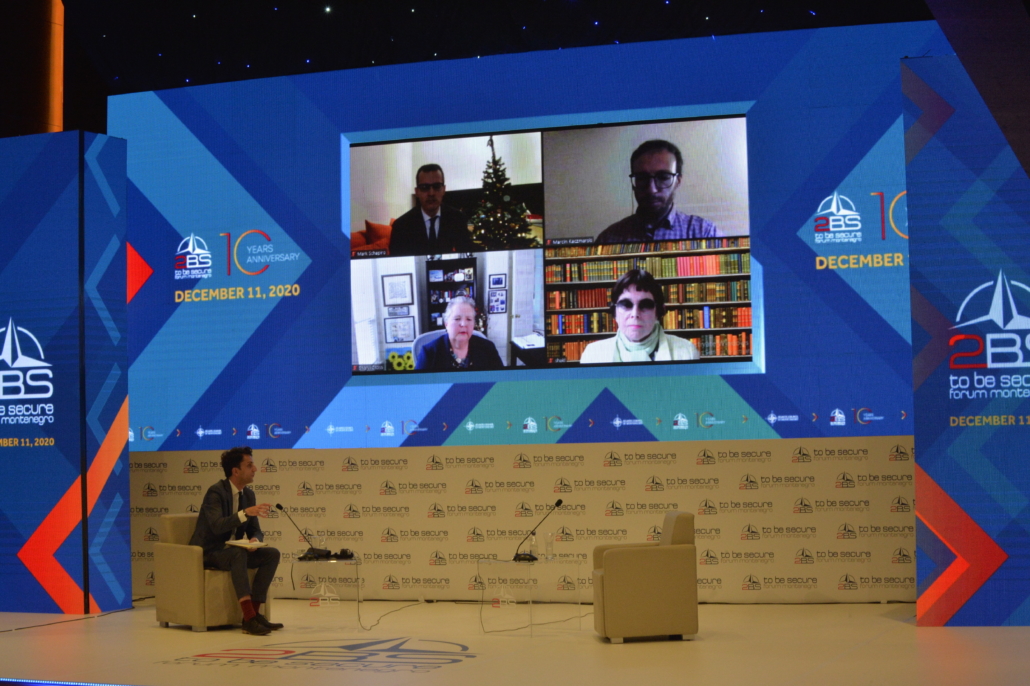Sharyl Cross, Distinguished Professor, and Global Policy Scholar at the Kennan Institute Woodrow Wilson, stated at the 2BS Forum that the support to medical staff and all those on the first line of defense was crucial in order to overcome the crisis, which was exactly what the USA had provided. She reflected on the politicizing of the pandemic, as in the case of masks. The reason for this lies in communication problems, which should not happen. Even though this pandemic is not a traditional security threat, just last week it took more lives than on September 11.
Cross also reflected on the global power relations during the pandemic and concluded that the conflict between Russia and the USA was noticeable.
Marcin Kaczmarski, lecturer in Security Studies at the School of Social and Political Sciences of the University of Glasgow, said at the 2BS panel discussion that a small extent to which COVID-19 had changed the geopolitical competition in the world almost represented a paradox. According to him, the status quo is still in force.
During this pandemic, we witnessed the competition between China, Russia, and the USA, Kaczmarskisaid. He added that the powers were competing on who would handle the crisis better. When it comes to China, Kaczmarski said that the attempt to change the narrative on the pandemic in that country was visible. He emphasized that China presented itself as a country that successfully combatted the pandemic.
Mark Schapiro, Foreign Policy Advisor at the U.S. Naval Forces Europe-Africa, also took part in this panel. He said that the main goal of the USA during the pandemic was not to let the health crisis turn into a national security threat. He added that the discipline in informing was crucial in the combat against the pandemic.
The pandemic has been one of the fields that the global leaders were competing in, Schapiro said. However, he also emphasized that the competition between the countries did not imply conflict or animosity.
When it comes to the USA as a global leader, the USA is building this position on the basis of the civil-military partnership.
Schapiro also responded to the observation of Professor Kaczmarski on the global players’ competition during the pandemic. He stated that the power competition did not have to turn into confrontation, or, that it did not imply animosity.
Finally, he said that this represented an international problem that the international response was needed for.
Tatyana Shakleina, Professor at the Moscow State Institute of International Relations, said that a better world could not be built upon the aggressive agenda. According to her, in order to make changes to the agenda, the world must focus more on problems such as global warming, environmental pollution, and migration. She added that those were the common problems that may unite us. A better world cannot be built, if we do not make changes to our current agenda, Shakleina said.
